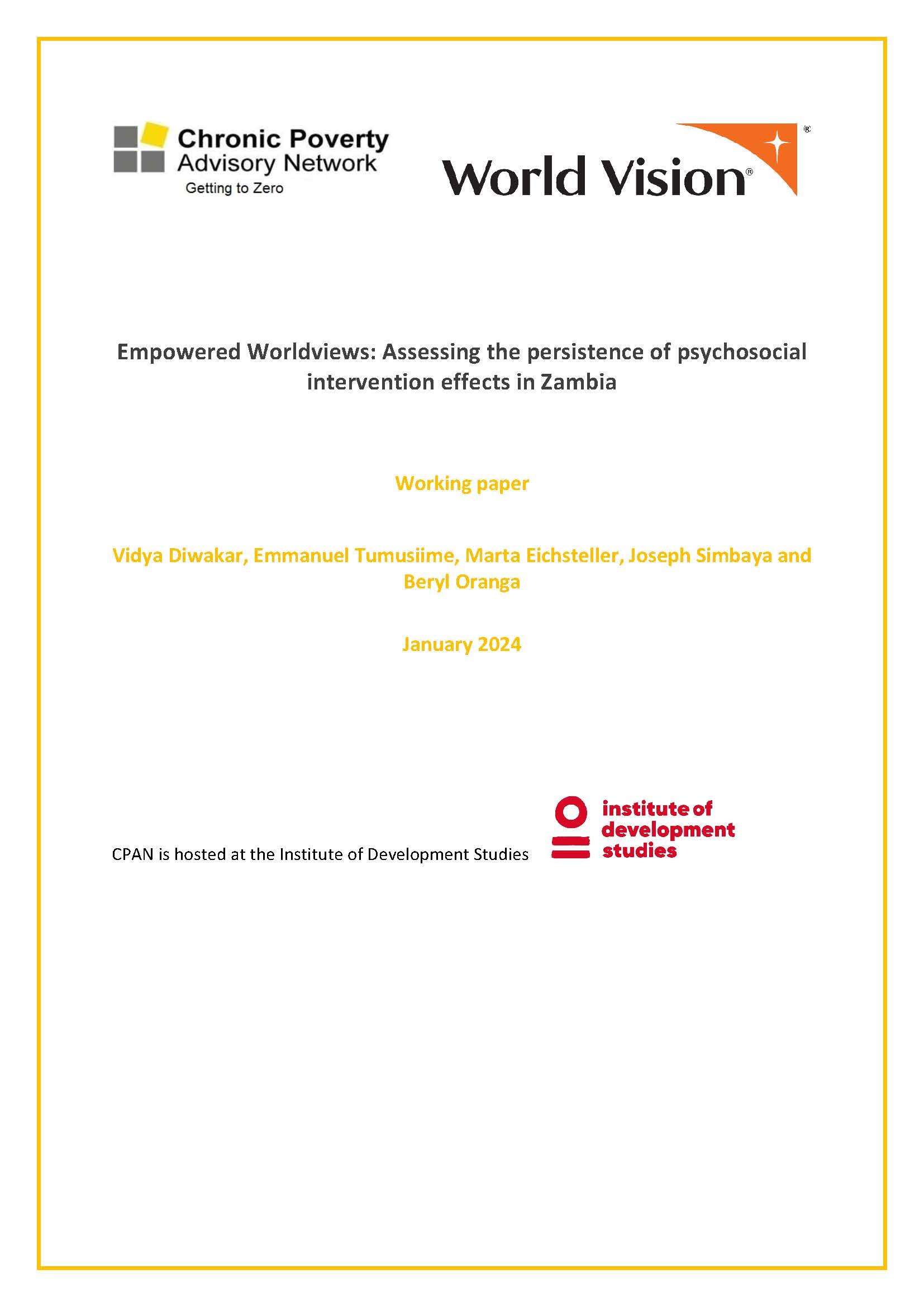Evidence on the persistence of psychosocial outcomes of interventions over the medium and long term, and in the face of shocks and stressors, is limited. We examined the extent to which empowerment associated with a psychosocial, faith-based approach, Empowered Worldview (EWV) persisted 3–5 years post-delivery of the intervention in Zambia among smallholder farmers. The EWV intervention in Zambia was delivered as part of THRIVE, an integrated livelihoods programme. We followed a previous study to disaggregate individual-level empowerment associated with EWV into three domains: internal (which relates to ‘power within’), localised (typically participation and access), and structural (e.g. institutional, environmental, and social structures).
To explore the persistence of EWV effects on empowerment, we used mixed methods and longitudinal data collected in 2020 and 2023, which were the midline and endline points of the THRIVE programme. Empirically, we used descriptive and regression analysis to compare internal and localised empowerment levels between the survey rounds (2020 and 2023) across study groups – including groups that received EWV before and after 2020 – and to the control group. We also re-interviewed a subset of EWV participants interviewed in 2020 to understand how empowerment has changed at the individual level over time.
Life history diagram for Beatrice.
The results show levels of internal empowerment associated with the EWV intervention persisted between the midline and endline surveys, especially when combined with THRIVE livelihood interventions. At the midline, 80.0 per cent of THRIVE with EWV participants were empowered, compared to 82.3 per cent at the endline. In contrast, 72.6 per cent and 73.07 per cent of the control sample participants were empowered at the midline and the endline, respectively. Quantitative results further show that localised empowerment significantly improved between survey rounds among participants who received EWV training and is positively associated with internal empowerment, consistent with literature that suggests localised enablers (supporting social environments) are crucial to sustaining internal empowerment. The qualitative data shows that persistent internal and localised empowerment was observed mostly among households in the non-poor wellbeing category, suggesting that additional interventions are needed to reach the poorest participants. Results also show internal and localised empowerment are positively associated with indicators of household resilience. We conclude the paper with recommendations for programming.
Life history diagram for Edward
Click here to read the full report
For further insights on the first phase of the study, click here





